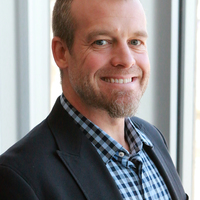
At the end of the day, Michael Hogue wants his virtual lecture to raise questions about religion and naturalism in his audience — and to inspire that audience to ultimately begin researching the answers to those questions themselves.
Hogue considers himself a religious naturalist — a theological perspective that involves the pursuit of religious meaning through the natural world.
“Religious naturalism doesn’t have a religious body that requires membership or creedal loyalty,” said Hogue, a scholar and professor at the Meadville Lombard Theological School in Chicago, Illinois. “To me, it’s a way of being religious and thinking religiously from within and across other religious traditions. It’s a mindset and way of thinking about the religious life that can deepen and enrich your own religious practice.”
At 2 p.m. EDT Friday, July 3, on CHQ Assembly, Hogue will kick off Chautauqua’s Interfaith Friday lecture series with a unique perspective on religion and nature. Hogue will be joined in conversation by Gene Robinson, Chautauqua’s vice president of religion and senior pastor.
Hogue said that two of his central motivating issues are climate justice and climate emergency.
“One of the questions I’ll raise in the talk is, ‘Why is it that we should care at all about nature?’” he said. “Different religious traditions have different responses to that. Religious naturalism has its own kind of response.”
For Hogue, climate disruption is one of the key reasons why religious naturalism is relevant.
“Instead of God being at the center of this religious option, nature is at the center,” he said. “Nature is all there is for the religious naturalist. There’s no outside of nature, no creator God, and in fact, nature itself has no center.”
But Hogue — whose spiritual and academic inspirations include the scholars Ursula Goodenough, Wesley Wildman and Carol White — said that though nature lacks a center, that doesn’t mean there aren’t purposes and values to be discovered there.
“In fact, once we decenter human life and human concerns and the idea of a supreme being from our religious habits and thinking, then I really think we can discover the value and the fragility of life on our planet,” he said. “For me, it comes back to our way of understanding what care for nature, care for the planet, care for the many forms of life that are more than human — what it all means.”
Though the current outlook on the climate change crisis is bleak, Hogue said his reasons for forging on with his life and his work haven’t changed.
“I get up in the morning because I’m committed to the practice of hope,” he said.
This program is made possible by the Gertrude Elser Schroeder Fund.




